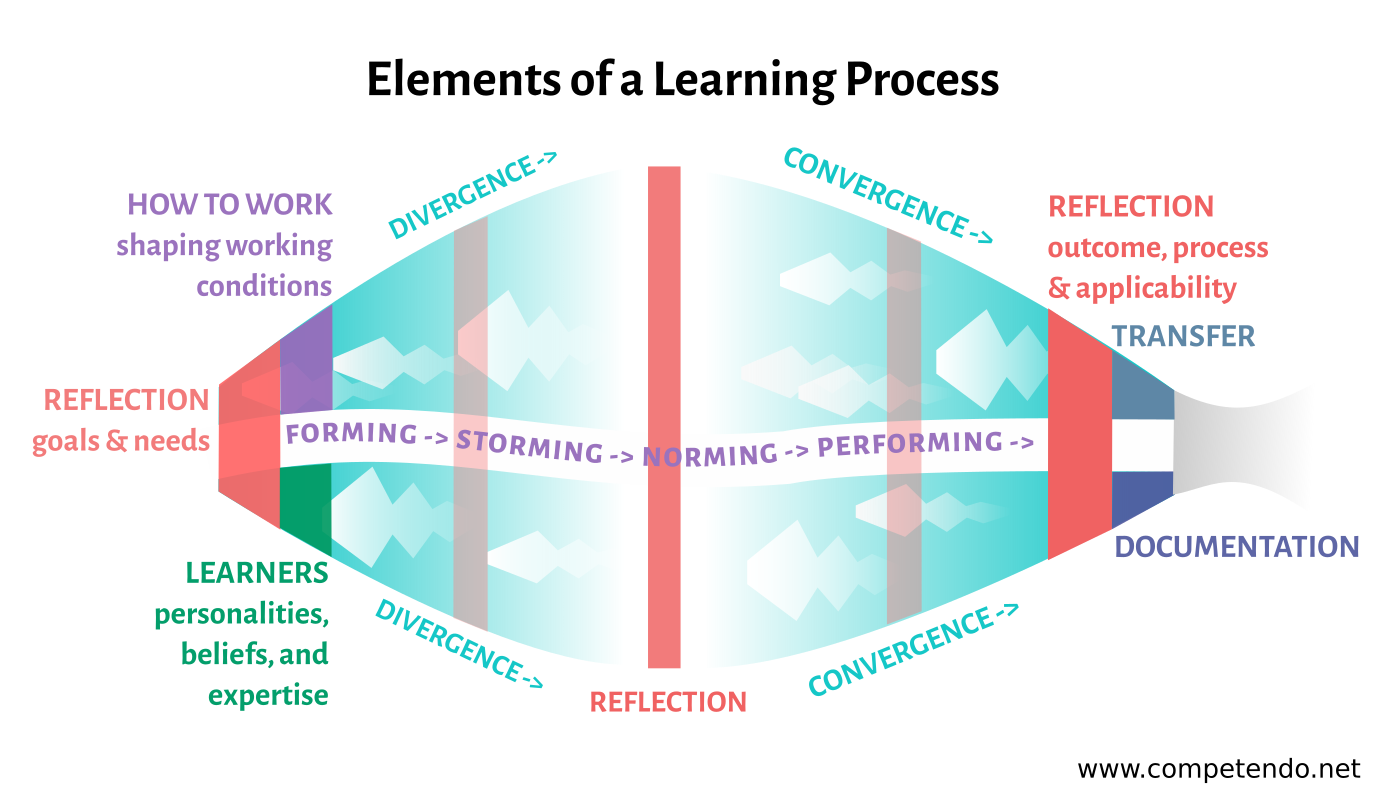Difference between revisions of "First Steps"
From Competendo - Digital Toolbox
(→Needs) |
|||
| Line 10: | Line 10: | ||
===[[Needs]]=== | ===[[Needs]]=== | ||
At the beginning of a seminar or unit start with the needs of participants, institutions and facilitators. Our opportunity is to make the seminar tailored to the participants' and stakeholders' needs and to agree about the common learning experience. | At the beginning of a seminar or unit start with the needs of participants, institutions and facilitators. Our opportunity is to make the seminar tailored to the participants' and stakeholders' needs and to agree about the common learning experience. | ||
| + | |||
| + | <div class="mw-collapsible mw-collapsed" data-expandtext="What's inside?"> | ||
| + | <div class=teaser-box> | ||
| + | === [[Dynamic Research]]=== | ||
| + | [[File:Method.png | left]]A very effective "4-minutes questionnaire" for the beginning of a training. | ||
| + | </div> | ||
| + | |||
| + | <div class=teaser-box> | ||
| + | ===[[Expectations]]=== | ||
| + | [[File:Method.png | left]]Trainers and participants sometimes have different expectations and wishes towards a training. Therefore, it is needed for all involved persons to share at the beginning of the training their expectations. In this way trainers and participants can agree upon certain things and disappointments can be avoided. | ||
| + | </div> | ||
| + | |||
| + | <div class="teaser-box"> | ||
| + | ===[[Five fingers–expectations]]=== | ||
| + | [[File:Method.png | left]]Facilitating a conversation on expectations of participants and facilitators toward a common learning event, giving the human needs place. | ||
| + | </div> | ||
| + | <div class=teaser-box> | ||
| + | ===[[Checklist: The institution]]=== | ||
| + | [[File:Check.png | left]] | ||
| + | </div> | ||
| + | |||
| + | <div class="teaser-box"> | ||
| + | ===[[The Facilitation Mindset]]=== | ||
| + | [[File:Attitude1.png | left | 120px]]Mindset in our context means the general opinion and feeling towards the learning process, the participants involved, and towards the idea of empowerment. This section supports you with tools which will help you reflect on your attitude and shape it consciously. Furthermore, it shows how attitude of empowerment during a training or seminar can express itself in a specific action. | ||
| + | </div> | ||
| + | </div> | ||
| + | |||
| + | |||
| + | |||
| + | |||
</div> | </div> | ||





